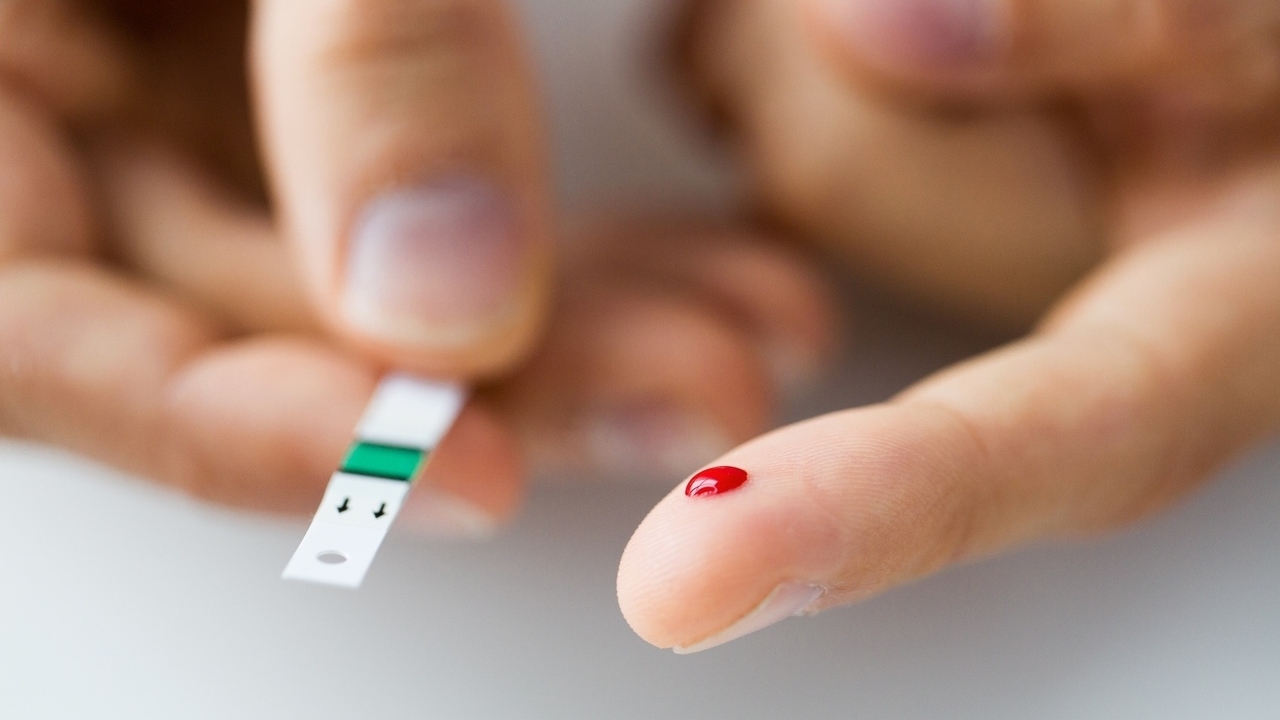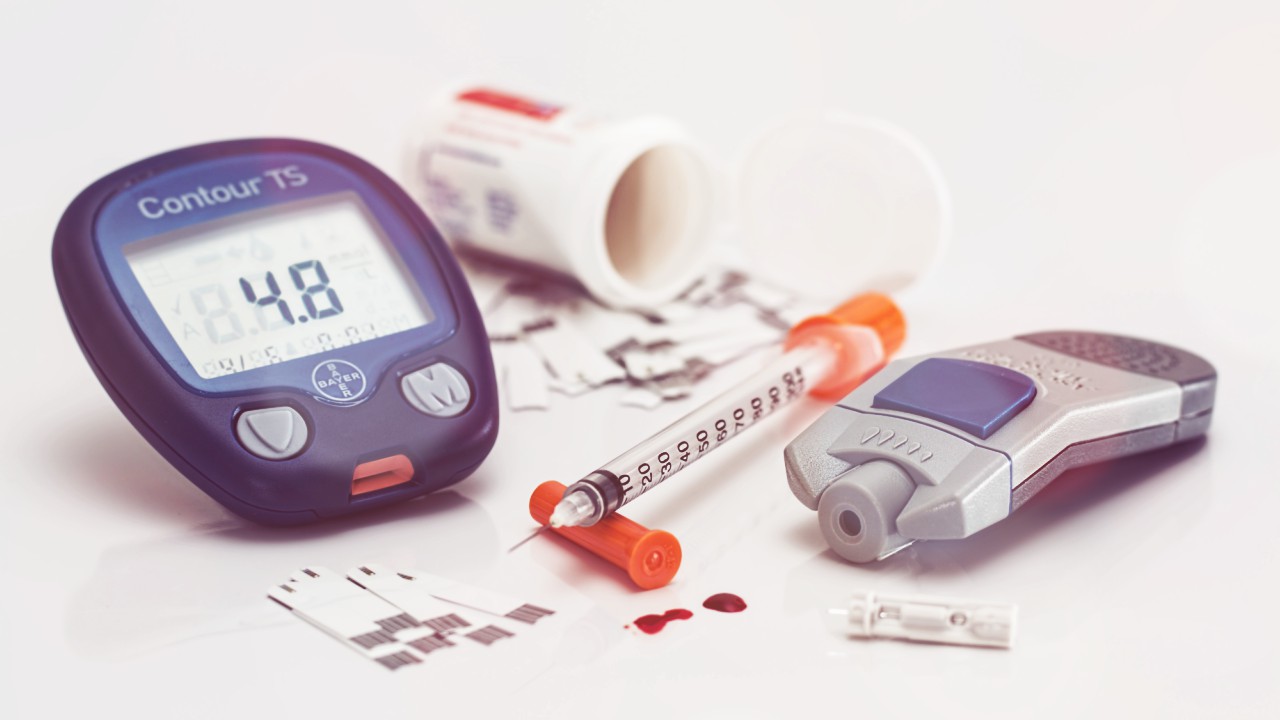 Syda Productions/Fotolia
Syda Productions/Fotolia
Diabetes is a serious condition that requires careful monitoring for good control. People with diabetes have excess sugar in their blood. This can happen because the pancreas does not produce insulin (type 1 diabetes) or because the pancreas cannot produce enough insulin for the body’s needs (type 2 diabetes).
Insulin is a hormone that helps move sugar from the blood into cells where it is used as fuel. If you have diabetes, knowing your key numbers can help you manage your disease to keep your blood sugar at an appropriate level and protect your health from other serious conditions.
1) Blood Sugar
You can test your blood sugar at home or on the go using a finger-stick test. A blood glucose meter will test a drop of blood so you immediately know how high or low your blood sugar is.
If you have diabetes, your doctor will tell you how often to test your sugar and what your target numbers should be. For most people with diabetes the goal is 80-130 mg/dl before eating, or less than 180 mg/dl one to two hours after the beginning of a meal.(3)
2) A1C
This number is very important for people with diabetes because it is the average of your blood sugar over two to three months. When you test your blood sugar using a glucose meter, you get the reading for that moment. If you recently ate, your sugar may be higher than normal. If you just finished exercising, it could be unusually low.
According to WebMD, the A1C test, which is processed by a laboratory, is the best way to know whether or not your sugar is well controlled.(2) The American Diabetes Association states that the goal A1C number for adults with diabetes is 7 percent or lower. (3)
3) Blood Pressure
Taking care of your diabetes is part of a bigger health plan that includes taking care of your heart. According to Everyday Health, people with diabetes are at higher risk to develop heart disease.(1)
Monitoring your blood pressure is one way to check the status of your heart. If your blood pressure is high, you may need medication or diet changes, such as avoiding sodium, to help bring this pair of numbers down to the normal range. Most people with diabetes should keep their blood pressure below 140/80 mmHg.(1)
4) Cholesterol
Another number that may show increased risk for heart disease is cholesterol. In general, your total cholesterol should be below 200.(1)
HDL or “good” cholesterol should be above 50 for women and above 40 for men. LDL or “bad” cholesterol should be less than 100 for both men and women.
Cholesterol tests may also report triglyceride levels. This is a fat that is naturally found in your blood. Triglyceride levels should be below 150.
5) Waist Size
Maintaining a healthy weight is a significant health consideration. But where extra weight gathers is also important to your health. In general, people with excess fat around the waist are at higher risk of heart disease. Losing weight can help improve both your blood sugar and your blood pressure.(1)
6) Kidney Function
If your blood sugar is not well controlled, the extra sugar in your blood can make your kidneys work harder. According to the American Diabetes Association, this can eventually damage the filters in your kidneys, leading to kidney failure.(4) This is a common complication of diabetes.
Your doctor can check the health of your kidneys by monitoring proteins in your urine. If microalbumin levels rise above 30, you may have early kidney damage.(1) Once those levels reach 300 or above, damage to your kidneys may be permanent.
7) Calories and Carbs
Your doctor will advise you on what foods to eat and what to limit to help control your blood glucose. Making good choices for a healthy, balanced diet will help keep your sugar at a more even level. This may also give you some freedom for small splurges with favorite foods that may be higher in sugar.
8) Time to Exercise
Exercise helps your body burn sugar. So getting regular exercise can help you keep your blood sugar where you want it to be. According to Everyday Health, 30 minutes of moderate aerobic exercise every day is a normal recommendation for people with diabetes.(1)
If you don’t currently have an exercise plan, be sure to start slow and work up to the recommended time.
9) Statistics
In the United States, over 9 percent of Americans have diabetes, which adds up to over 29 million people.(5) Another 1.4 million people are diagnosed with diabetes every year. In 2010, diabetes was the 7th leading cause of death in the United States.
People of all ages are at risk for diabetes. Approximately 208,000 youth in the United States have been diagnosed with diabetes, and over 11.8 million seniors have the disease.
If you have diabetes, knowing your numbers will help you control your disease and reduce your risks of serious complications. If you don’t have diabetes, knowing your numbers gives you the opportunity to track your health and be aware of changes that could lead to diabetes or other serious conditions.
If you have questions about diabetes or what your personal goals for any of these numbers should be, talk to your health care provider.
Reviewed December 12, 2016
by Michele Blacksberg RN
Edited by Jody Smith
1) 8 Numbers You Need to Know for Diabetes. Everyday Health. Jennifer Warner. Web. Retrieved November 20, 2016.
http://www.everydayhealth.com/hs/type-2-diabetes-live-better-guide/diabetes-numbers-know-pictures/#01
2) Diabetes: Know Your Blood Sugar Numbers. WebMD. Web. Retrieved November 20, 2016.
http://www.webmd.com/diabetes/know-blood-sugar-numbers
3) Checking Your Blood Glucose. American Diabetes Association. Web. Retrieved November 20, 2016.
http://www.diabetes.org/living-with-diabetes/treatment-and-care/blood-glucose-control/checking-your-blood-glucose.html?referrer=https://www.google.com
4) Kidney Disease (Nephropathy). American Diabetes Association. Web. Retrieved November 20, 2016.
http://www.diabetes.org/living-with-diabetes/complications/kidney-disease-nephropathy.html
5) Statistics About Diabetes. American Diabetes Association. Web. Retrieved November 20, 2016.
http://www.diabetes.org/diabetes-basics/statistics/?referrer=https://www.google.com





Add a CommentComments
There are no comments yet. Be the first one and get the conversation started!